Grief after losing a parent does not follow a plot. It slips past logic, forgets time, and lingers in rooms that once felt ordinary. If you’ve lost your dad or watched your mother go without warning, you know that silence is not peace. It’s a weight. And no matter how old you are, it still feels too early.
Books can’t replace what’s gone. But sometimes they help you sit with it. The right book doesn’t rush you forward. It speaks into the quiet, stays awhile, and names what others avoid. This list gathers books on grief and loss of a parent; each one chosen not for what it teaches, but for how it stays.
Some are tender, others blunt. Some are written by people who lost their mother in their twenties. Others come from those still learning how to speak about a father’s absence. All of them understand the slow rhythm of mourning. They don’t offer instructions. They offer recognition. Which, sometimes, is enough.
17 Books To Help You Cope With The Loss Of A Parent
Not every book about grief is built to hold the loss of a parent. Some try to soothe too quickly. Some don’t stay long enough. This list isn’t about closure, it’s about the company.
Here are 17 books to help cope with the loss of a parent; each one chosen not for what it teaches, but for how it stays. These are not answers. These are steady voices on the harder days.
1. The Year of Magical Thinking by Joan Didion
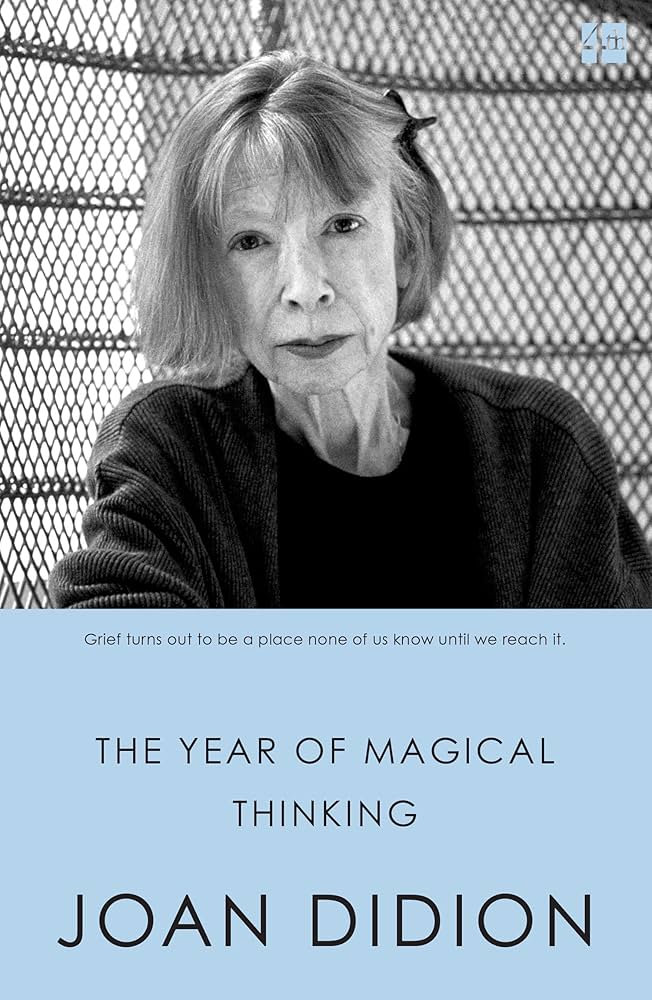
“Grief turns out to be a place none of us know until we reach it.”
Joan Didion’s The Year of Magical Thinking opens a raw, elegant window into how life quietly collapses after the death of a loved one. Her husband’s death sets off a year of suspended logic and near-magical thinking, a need to believe he might still return.
If you’ve lost a parent, this book may echo something you haven’t yet said aloud. Not all grief is loud. Some of it sits in rooms, refusing to move. Didion names that stillness with impossible grace.
2. It’s OK That You’re Not OK by Megan Devine
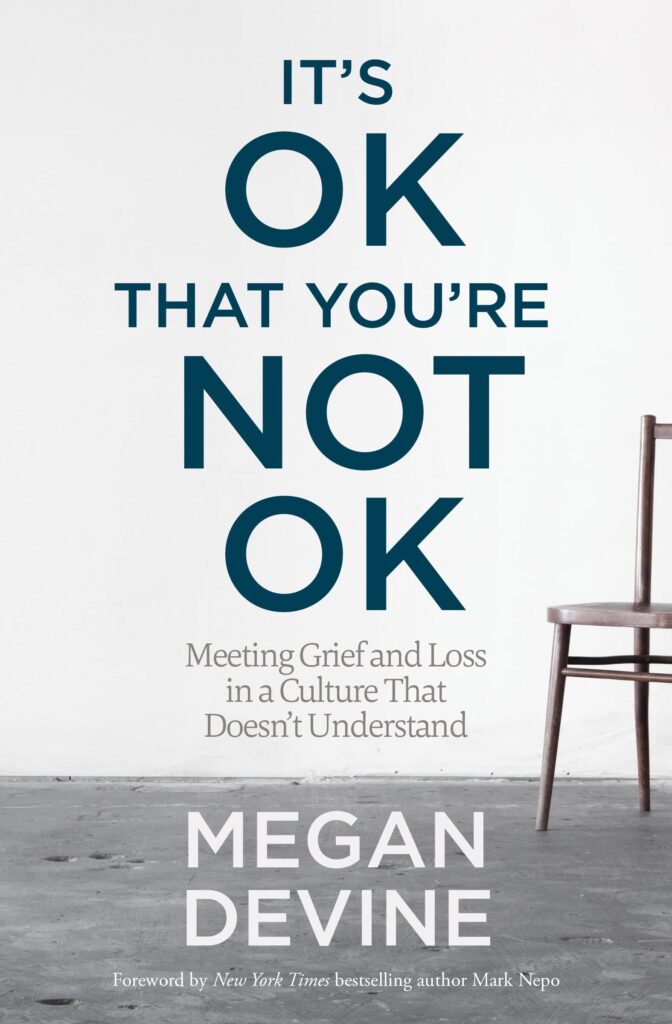
“Grief is not a problem to be solved; it’s an experience to be carried.”
Megan Devine’s It’s OK That You’re Not OK doesn’t try to fix grief. It redefines how we’re allowed to live inside it. She guides you through the wreckage, not out of it, and in doing so gives you maps where none existed. It does not console you or hurry your mourning. Instead, it holds you steady in the raw space where everything feels fragile.
If you’re looking for a book about grief and loss that understands that absence is, in fact, a form of presence, this is one of those rare companions, especially for those struggling to deal with the grief of losing a parent.
3. The Orphaned Adult by Alexander Levy
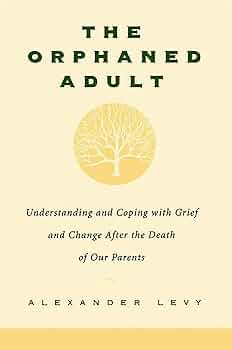
“Whatever our relationship with them and however well or poorly we get along, parents project an illusion of permanence, a constancy that suggests life to be a knowable, reliable, trustworthy, and, therefore, feasible endeavor.”
The Orphaned Adult by Alexander Levy is not a book about mourning rituals. It’s about what happens after the world moves on, but you remain quietly altered. Levy writes for adults who thought they’d be ready, only to find themselves caught off guard. He traces how grief can emerge not as sadness, but as dislocation, as a kind of emotional drift.
Among books about grief, this one makes space for the subtler, long-haul kind. Especially for anyone grappling with the loss of a parent as an adult, its insights land gently, then stay.
4. Notes on Grief by Chimamanda Ngozi Adichie
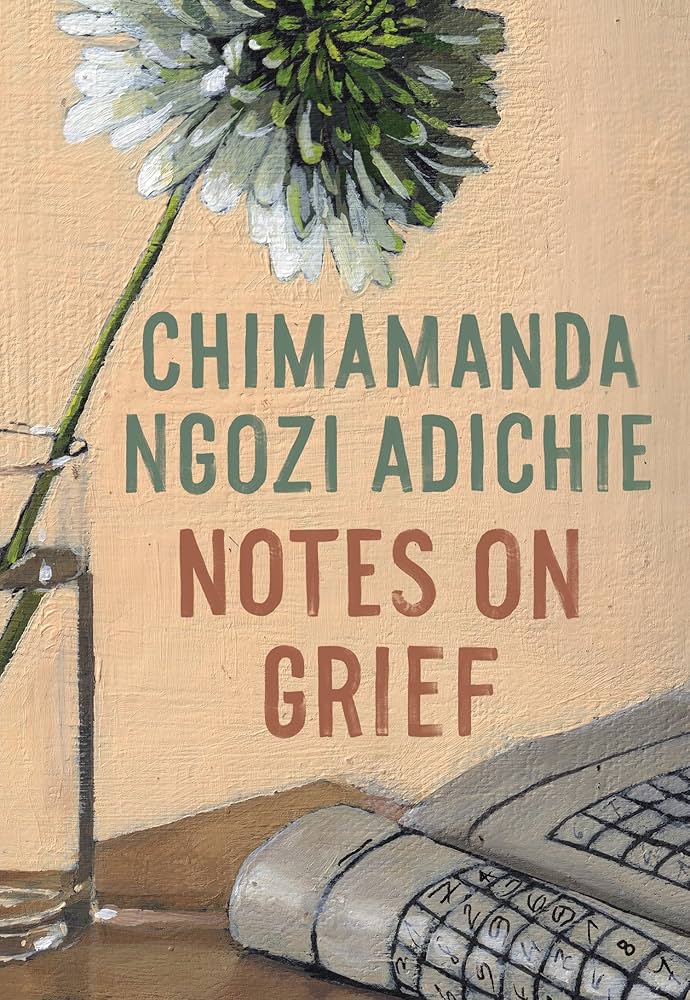
“We don’t know how we will grieve until we grieve.”
Adichie’s grief is fresh, spiked with disbelief. Notes on Grief captures the surreal rhythm of losing a parent, how the world continues while something inside you doesn’t. There’s no neat narrative here, only fragments: anger, memory, sharp ache.
For anyone grieving the loss of a parent, this book offers company without instruction. It doesn’t tell you how to move forward. It sits with what breaks. Among the many books on grief and loss of a parent, this one feels like a whispered recognition. The writing is sparse, precise, and painful in a way that feels deeply familiar.
5. The Grieving Brain by Mary-Frances O’Connor
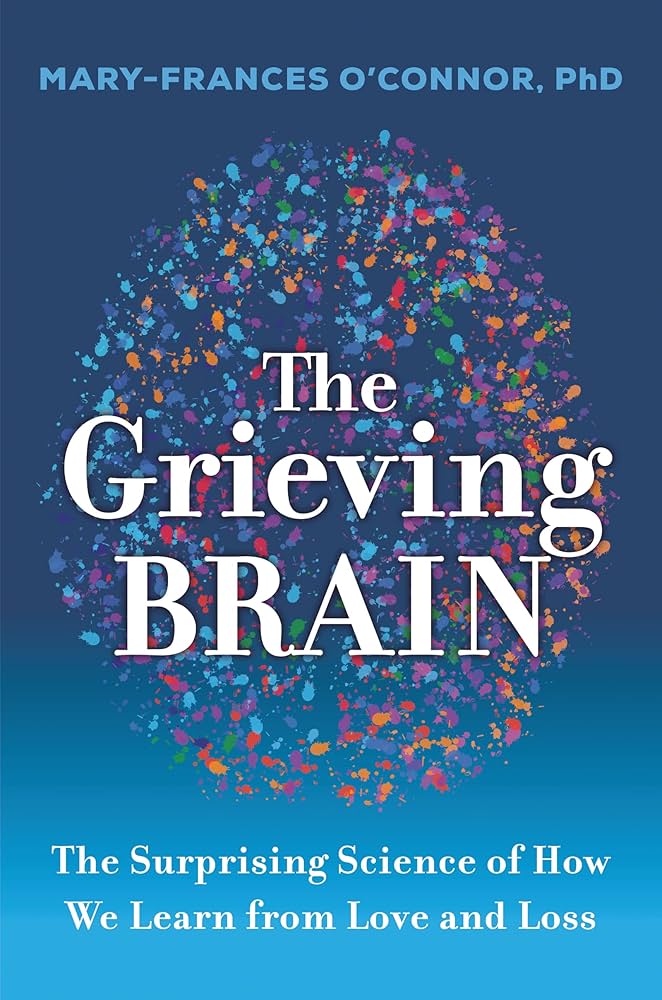
“Love and grief are a process of learning, and the brain is changed by learning.”
This is not a how-to on grieving. It’s a quiet decoding of what grief is, from the inside out. In The Grieving Brain, Mary-Frances O’Connor writes with rare tenderness about how the brain processes attachment and loss.
If you’ve felt like your grief was illogical, stuck, or unexplainable, this book gently reframes it. For anyone dealing with grief in a more analytical or introspective way, it offers language where there’s usually silence, even around things like bereavement or psychological resilience.
RELATED READING: 11 Books To Tackle Stress, Anxiety, And Overthinking
6. Bearing the Unbearable by Joanne Cacciatore
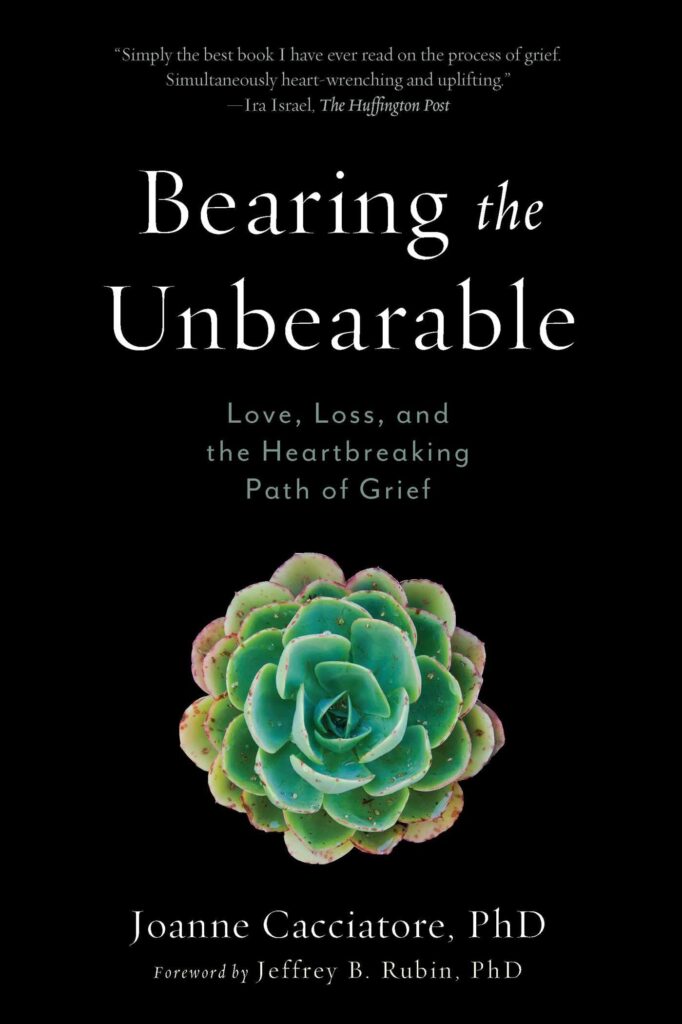
“Grief violates convention it is raw, primal, seditious, chaotic, writhing, and most certainly uncivilized.”
Joanne Cacciatore’s Bearing the Unbearable is less a book and more a hand on your shoulder. Born from her losses and her work with grieving families, it doesn’t ask you to heal on command. It meets you exactly where you are. She dismantles social myths that ask us to hide sorrow. Instead, she embraces grief’s full mess; the rage, the shame, the bewilderment.
If you are navigating the death of a parent and find yourself anxious or alienated, this will feel like permission to exist as you truly are. That kind of space is rare in a world that often silences heartbreak and grief.
7. The Rules of Inheritance: A Memoir by Claire Bidwell Smith
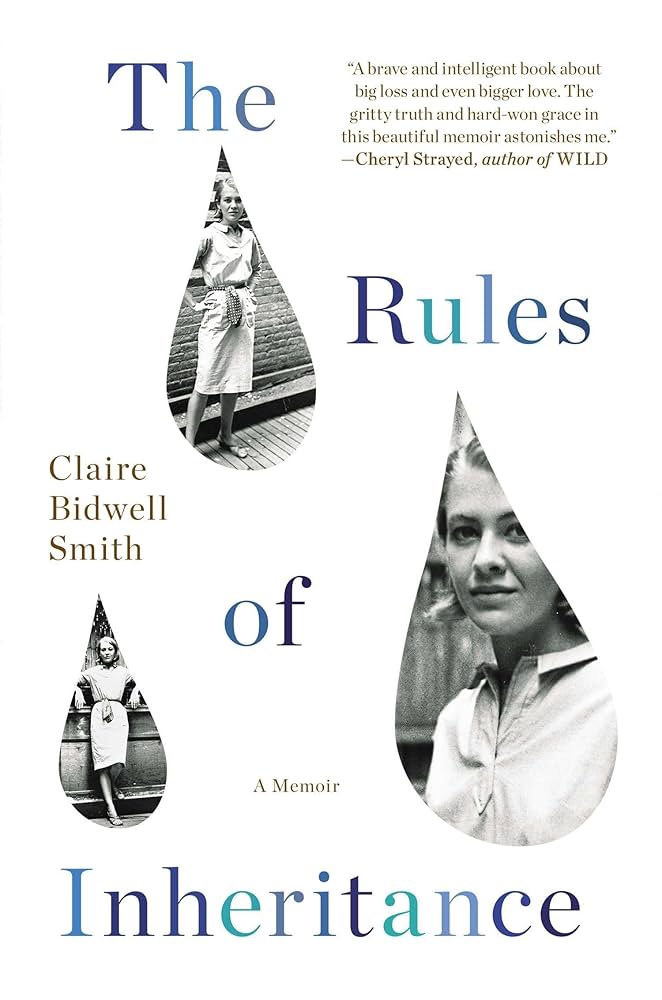
“Grief is now a giant, sad whale that I drag along with me wherever I go.”
The Rules of Inheritance is not a conventional grief memoir. It moves in fragments, reflecting how memory warps after loss. Smith abandons neat chapters for emotional truth; one moment, she’s chasing escape on a plane, the next, she collapses in a hospital waiting room. The effect is disquieting and necessary.
Like many books on grief and loss of a parent, it doesn’t offer resolution, but what sets it apart is the permission it grants to remain in pieces for a while. If you’re seeking books to help cope with the loss of a parent, this one shows that survival often begins in the rubble. And that survival itself is a kind of inheritance, more so when the relationship dynamics with the lost parent remain unfinished.
8. A Grief Observed by C. S. Lewis
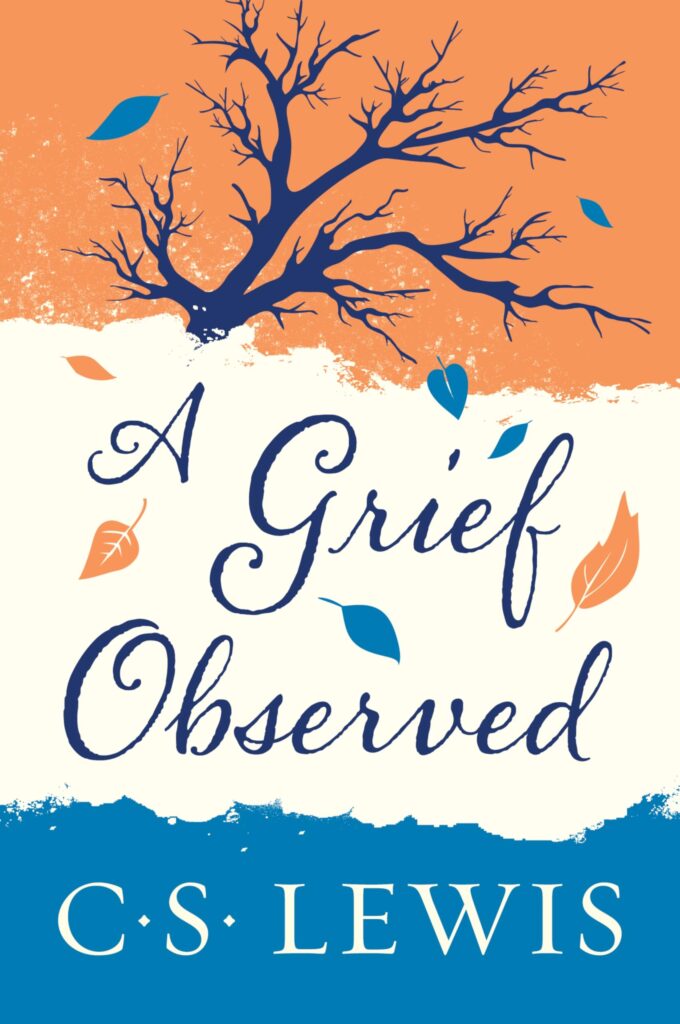
“No one ever told me that grief felt so like fear.”
This quick read is like a journal left open on your lap, full of questions, anger, and naked longing. In A Grief Observed, C. S. Lewis doesn’t hide the cracks. He shows how grief steals sleep, rewrites faith, and erodes certainty. He doesn’t offer recovery or redemption. He offers the experience of grief in progress. If you want books on grief and loss that articulate what faith and sorrow do when they collide, this one names the tremor.
9. Healing After Loss: Daily Meditations for Grief Recovery by Martha Whitmore Hickman
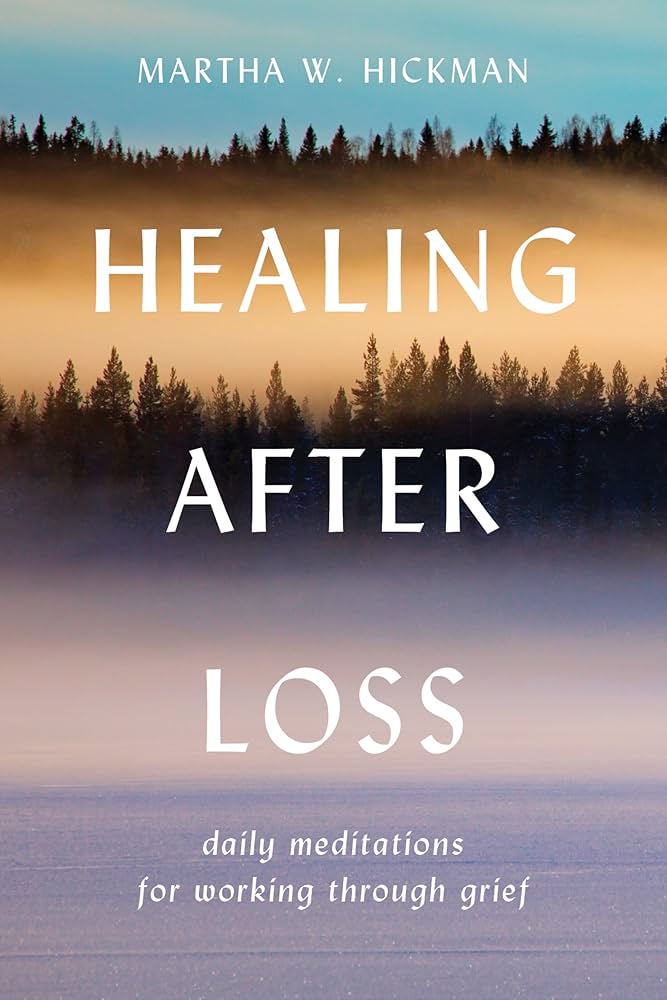
“The greatest tribute to the dead is not grief but gratitude.”
Healing After Loss: Daily Meditations for Grief Recovery understands the quiet, invisible weight of sorrow. Martha Whitmore Hickman writes for the days when you still show up: teeth brushed, emails answered, but something inside remains tender. Her words offer presence, not pressure.
This is one of those books for adults who lost parents and need steady, non-judgmental language for healing. No big lessons. Just small, human anchors for the days that feel adrift and more pain than progress.
10. When Your Parent Dies: A Journey Through Grief by Ron Klug
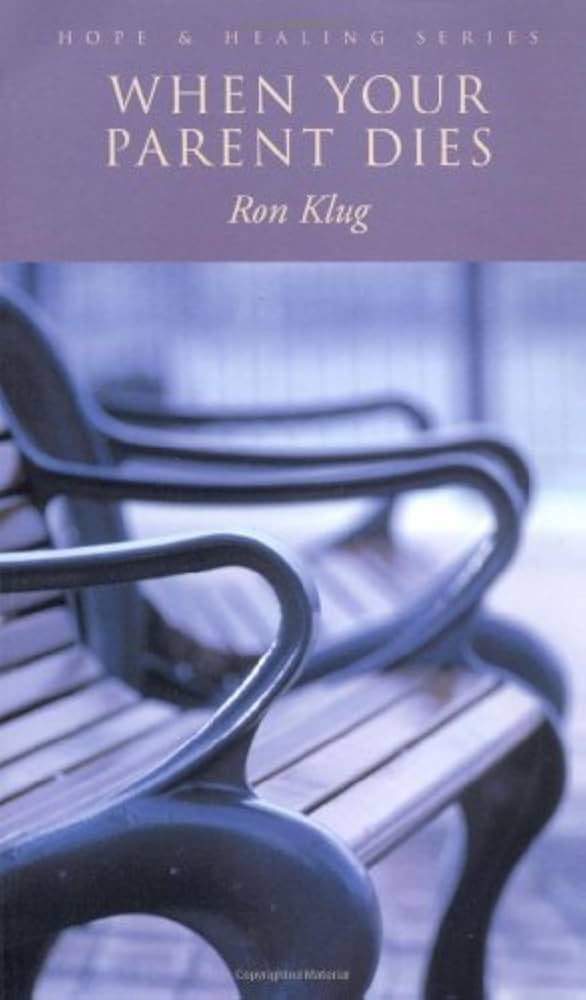
“We can’t know for sure, but there are reasons for hope.”
When Your Parent Dies: A Journey Through Grief is a quick read that doesn’t try to explain grief. It stays close to it. Ron Klug writes with gentle honesty about the strange weight that comes after a parent’s death, the quiet void, the unfinished conversations, the rearranged identity.
If you’re dealing with grief, this book meets you in that slow, private space when you’re not sure how to begin coping with the death of a mother or father, or the guilt of living with the reality of their absence. Its brevity is a kindness. The words feel like they were written during the silence after a funeral, when everything has changed but the world keeps moving.
RELATED READING: 10 Intense Books On Messy Relationships
11. Motherless Daughters: The Legacy of Loss by Hope Edelman
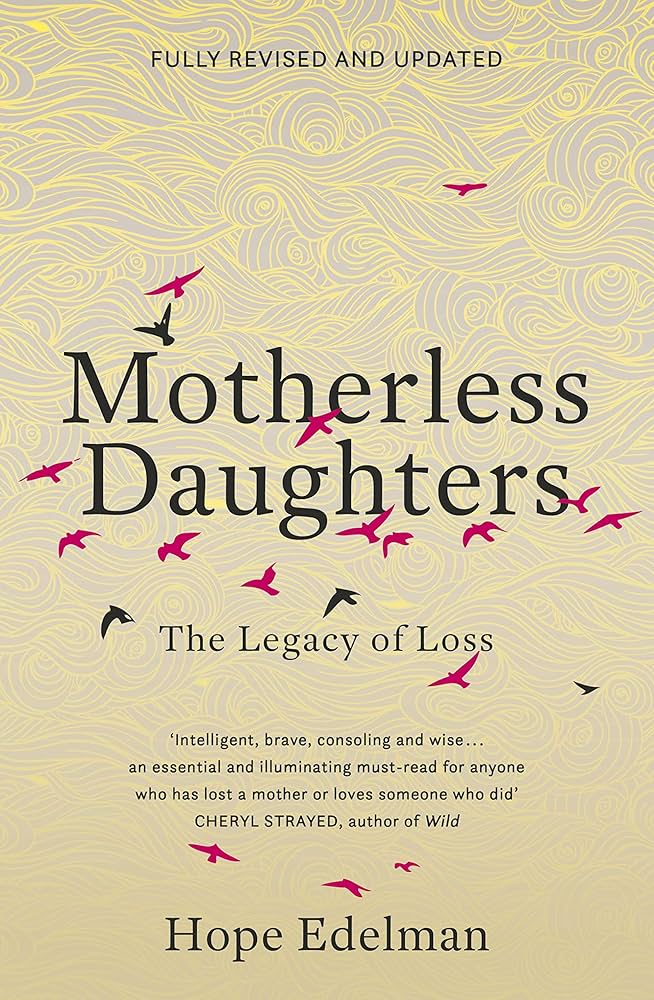
“Our lives are shaped as much by those who leave us as they are by those who stay.”
Motherless Daughters is a deeply human exploration. Hope Edelman speaks to grief as an inheritance, not a problem to solve. She does not flatten pain into stages, nor wrap it in clichés. Instead, she sits with absence, showing how loss becomes part of our emotional wiring.
If you are seeking books to help cope with the loss of a parent, especially a mother, this one sees the unshakable echoes loss leaves behind. It belongs on every list of books on losing your mother, and it doesn’t silence the ache. It shifts it into something wiser, more expansive.
12. I Wasn’t Ready to Say Goodbye by Brook Noel & Pamela D. Blair
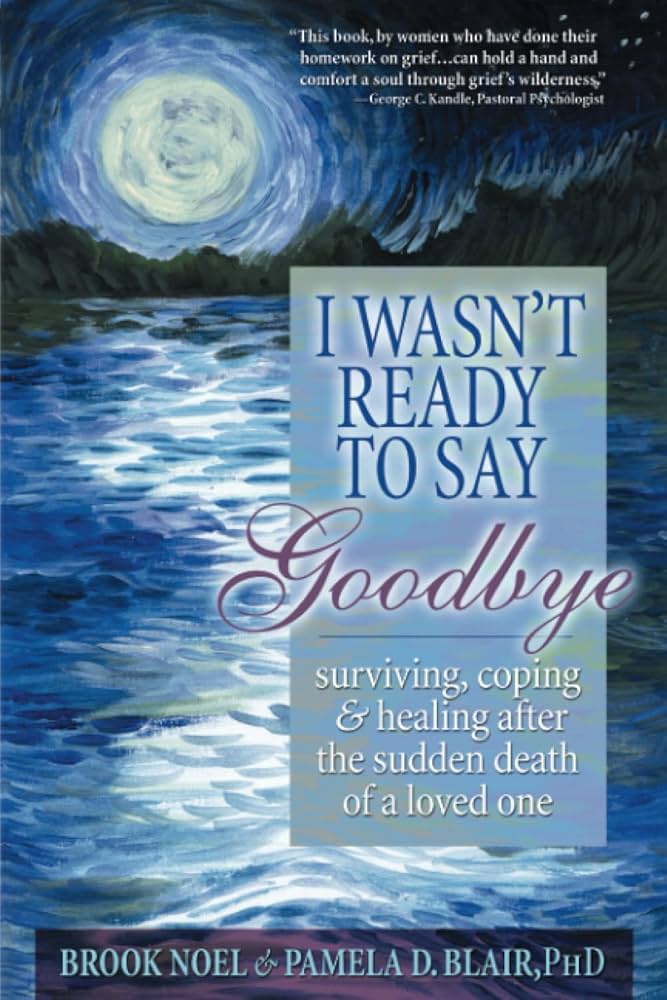
“Grief:” You don’t get over it you just get through it you don’t get by it because you can’t get around it it doesn’t “get better” it just gets different every day . . . grief puts on a new face.”
Sudden loss can leave you spinning. Brook and Pamela’s I Wasn’t Ready to Say Goodbye doesn’t stop the spin, but it names it. If you’re grieving the loss of a parent and nothing feels real yet, this one offers language for that fog. It combines heartfelt narrative with grounded tools. You don’t have to be okay to read it. That’s the point. It meets you exactly where you are.
13. Permission to Mourn: A New Way to Do Grief by Tom Zuba
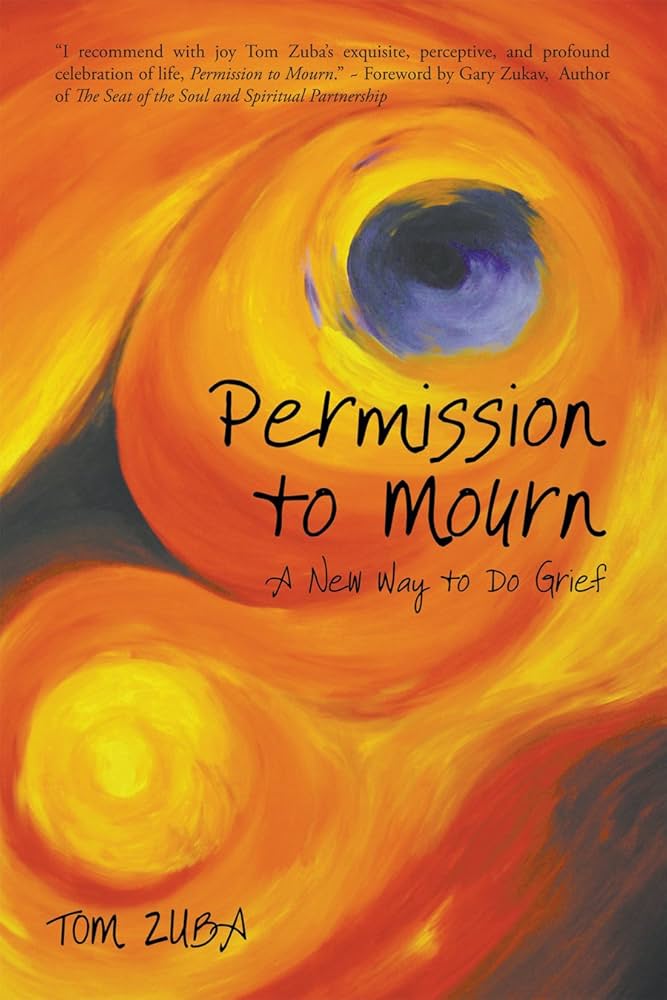
“The death of someone we love dearly cracks us open. Big time. It’s supposed to.”
There’s nothing neat or linear about grief, and in Permission to Mourn: A New Way to Do Grief, Tom Zuba portrays it. This book reads like quiet permission to feel what you feel, no matter how long it takes. His experience of losing loved ones is not recounted to create drama; it’s there to show survival.
For anyone living with the reality of parental loss, this book offers stillness, not advice. Sometimes, that’s enough.
14. Grief Day by Day: Simple Practices and Daily Guidance for Living with Loss by Jan Warner
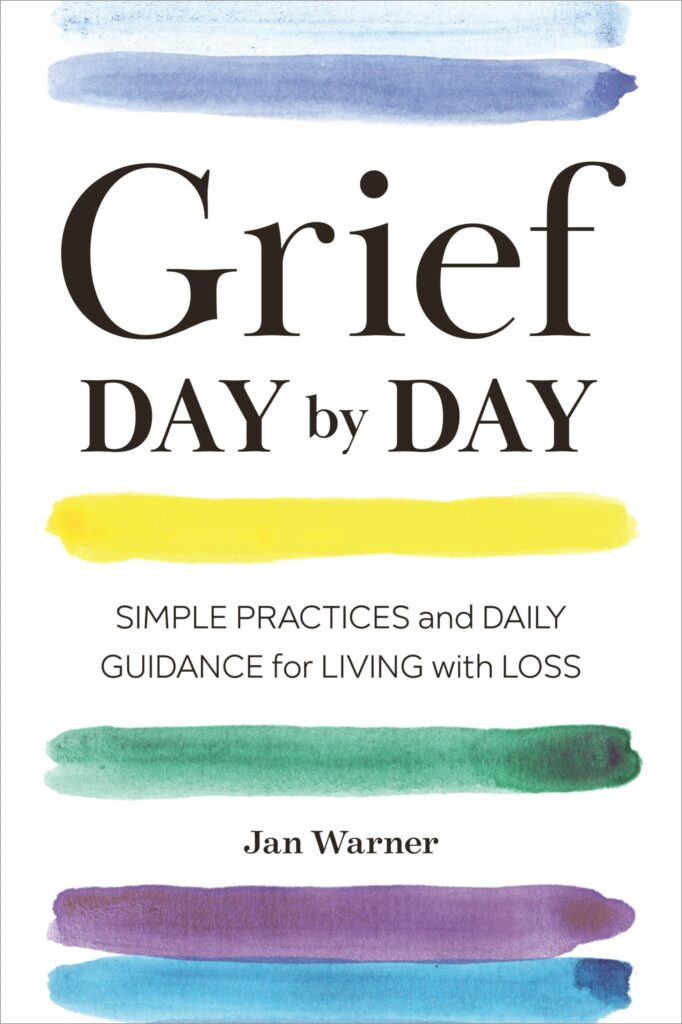
“What no one told me about grief is how lonely it is. No matter who else is mourning, you’re in your own little cell.”
Sometimes grief isn’t loud. It lives in quiet exhaustion or pulling apart in private. Jan Warner understands this. Her Grief Day by Day book is built not on answers, but on moments, short passages, a quote, and an exercise. Each one is a step toward staying present.
If you’ve lost a parent and grief feels like endurance, not emotion, this book could be your uplifting companion. It helps you carry the loss one day at a time, not all at once, and paves the way to getting back on track.
15. When Dinosaurs Die: A Guide to Understanding Death by Laurie Krasny Brown & Marc Brown
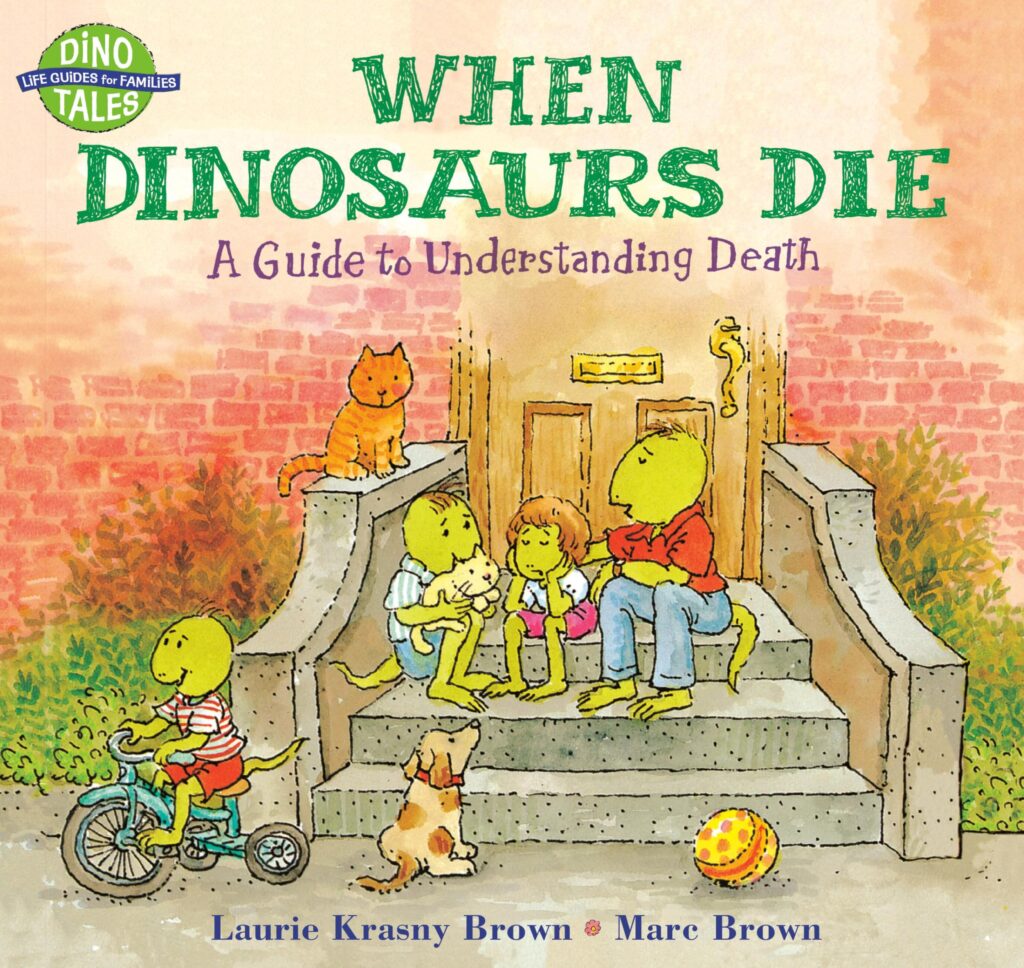
“All this dying stuff makes me feel sad, worried, and afraid.”
Not all grief is spoken. Sometimes it’s drawn in crayons or whispered at bedtime. When Dinosaurs Die: A Guide to Understanding Death offers a beginning, a way to tell children the truth without breaking their trust. Laurie Krasny Brown’s words are direct but never cold.
If you need children’s books on grief and loss of a parent, this one stays calm when everything else feels too big. It opens a door, slowly.
RELATED READING: 15 Famous Cat Characters In Books Who Stole Our Hearts
16. The Long Goodbye by Meghan O’Rourke
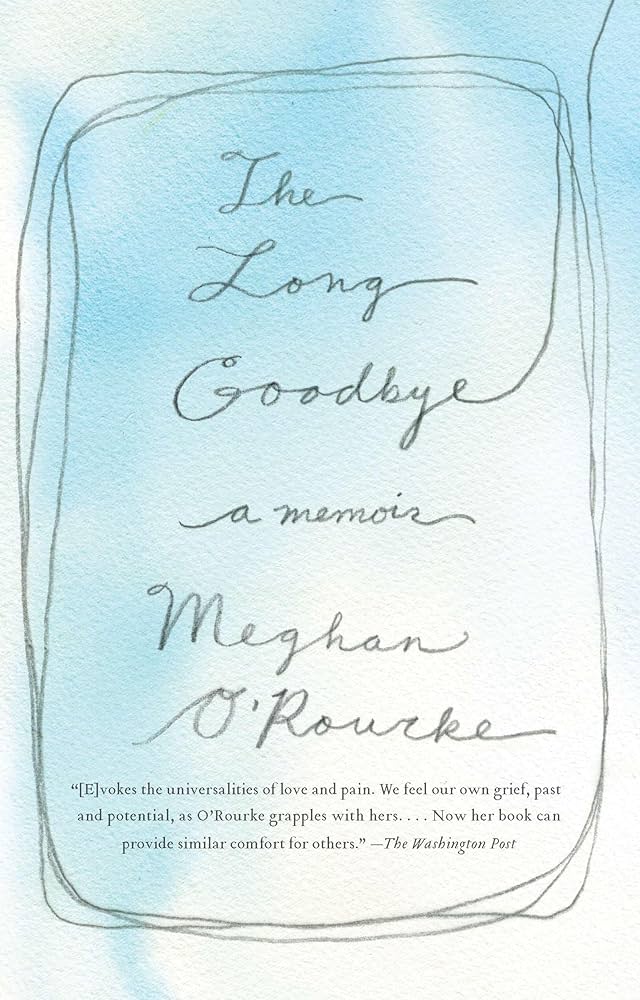
“Sometimes you don’t even know what you want until you find out you can’t have it.”
The Long Goodbye is a grief memoir without neatness or a timeline. O’Rourke writes about losing her mother in her 20s, and how the pain didn’t behave. It stayed. It altered everything. For anyone grieving for a parent, The Long Goodbye offers something rare: a lyrical account of what it’s like to come of age in the shadow of death.
The book doesn’t aim to fix or soothe. It simply speaks honestly about what it means when a parent dies, especially if that loss of mom happens at a young age.
17. Fatherloss: How Sons of All Ages Come to Terms with the Death of Their Dads by Neil Chethik
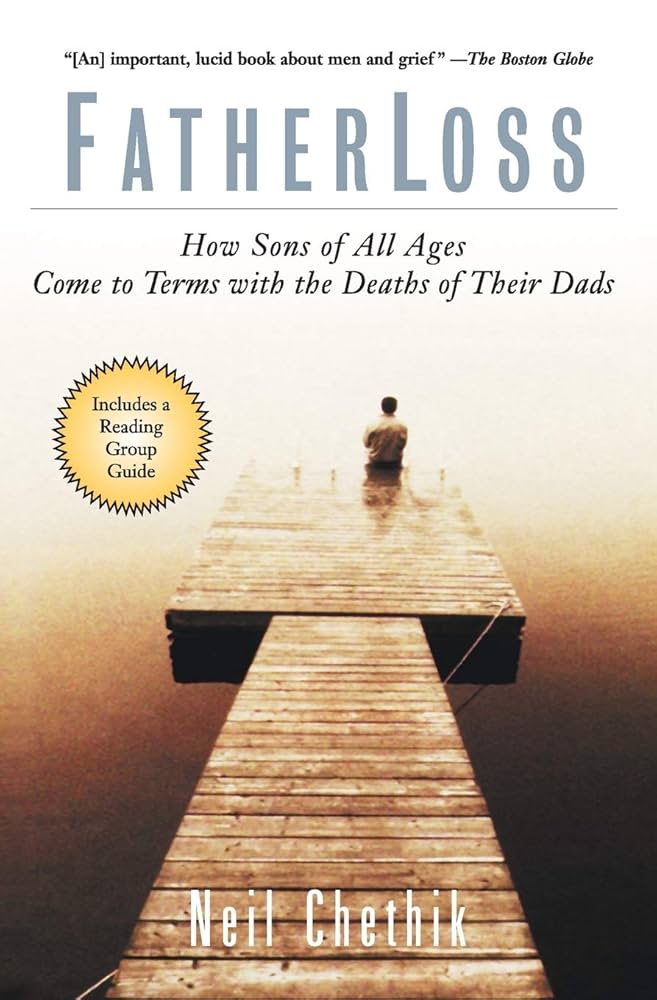
In Fatherloss: How Sons of All Ages Come to Terms with the Death of Their Dads, Neil Chethik listens carefully to the grief of men. Some lost their fathers decades ago, some only yesterday, but each story becomes a mirror of emotional truth. This book doesn’t generalize loss; it honors the way it shapeshifts, especially when cancer, estrangement, or silence linger in its wake.
Though focused on sons, this book is equally valuable for women hoping to understand a brother, partner, or even themselves through a different lens of loss. One chapter gently traces the most traumatic age to lose a parent, not as fact but as feeling.
Support And Help Groups
Some grief cannot be read away. Sometimes, you need to hear another voice say, “I know.”
These spaces are not solutions; they’re a company.
Join when the silence becomes too loud or when the ache feels unnameable. Whether in-person or online, support groups remind you that even pain can be shared, and that witnessing someone else’s story can sometimes help you carry your own.
- The Dinner Party: A peer-led community for people in their 20s and 30s who have lost someone close. Whether you’re a daughter grieving the loss of a father or carrying a quiet ache few understand, this is a space for honest connection over shared meals
- GriefShare: A global network of support groups with a faith-based approach. Especially helpful for those losing a parent to a serious disease who feel isolated in their pain
- Open to Hope: Founded by a mother and daughter who each experienced profound loss. Their platform includes podcasts, writings, and poems of grief and healing by and for the bereaved
- Reddit – r/GriefSupport: An anonymous, non-judgmental forum to share memories, rants, regrets, and relief. No advice, just presence
- Modern Loss Facebook Group: A vibrant, irreverent, human space for people grieving in real life—especially when that grief is complex, untidy, or doesn’t follow a script
Where Grief Lingers, Words Stay
There is no tidy arc to grief. Especially not when the person who went was your beginning. The silence after a parent dies doesn’t fade on schedule; it just finds new corners to echo in. These 17 books to help cope with the loss of a parent won’t move the ache. But they might soften it. They might sit beside it. Some will offer rituals—some, only a sentence that finally says it right.
Among them are best-selling books on grief and loss, but this isn’t about popularity; it’s about resonance. Grief doesn’t ask for closure. It asks to be heard. If even one of these books speaks for you, then maybe, today, you are not alone.
8 Amazing Books To Read When You Feel Lost And Directionless




